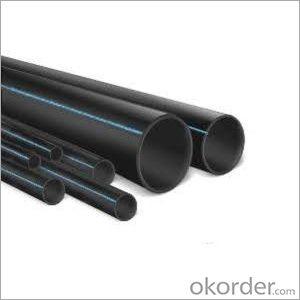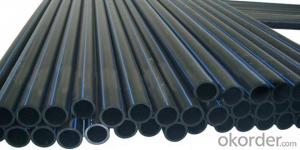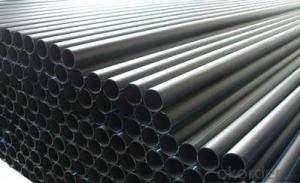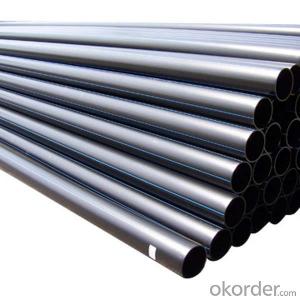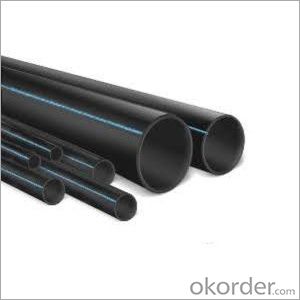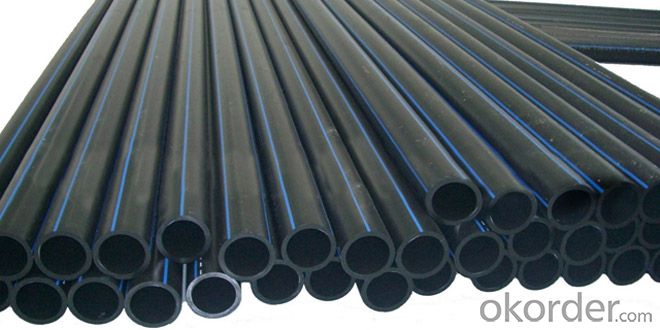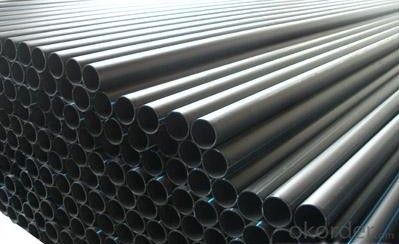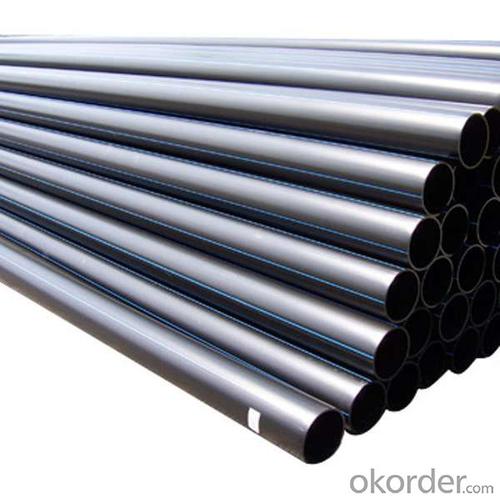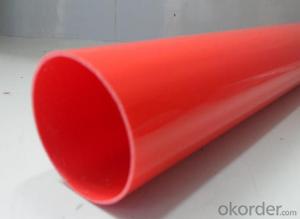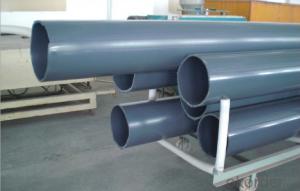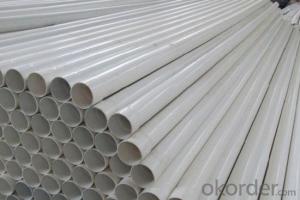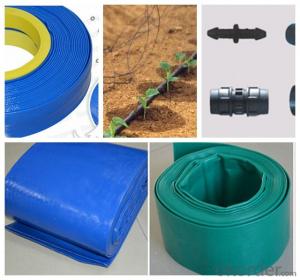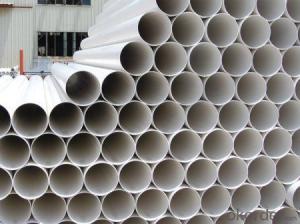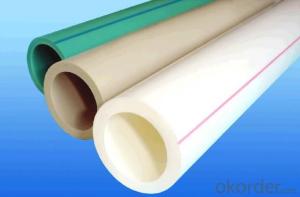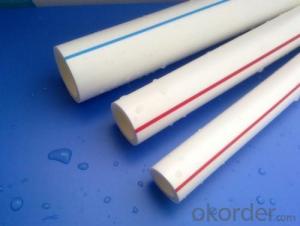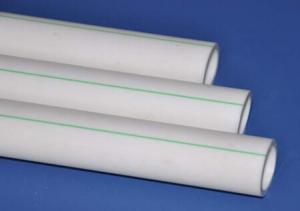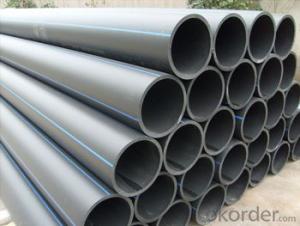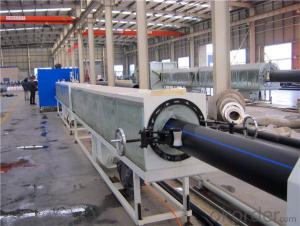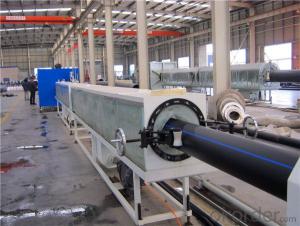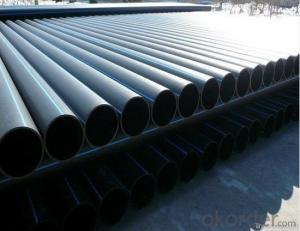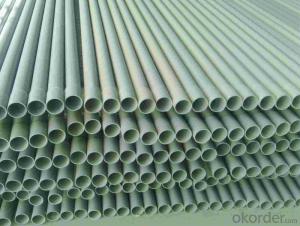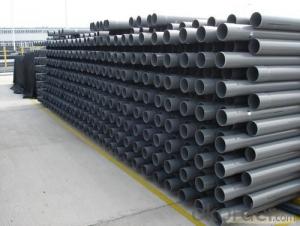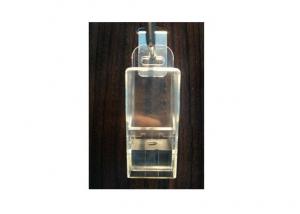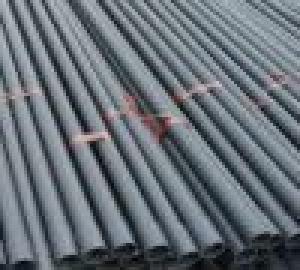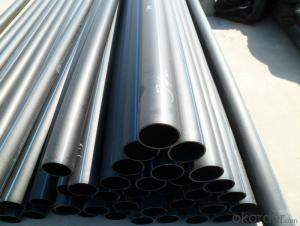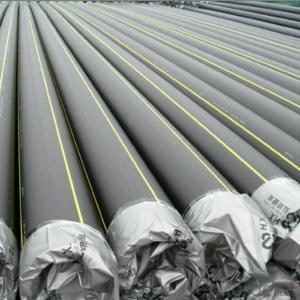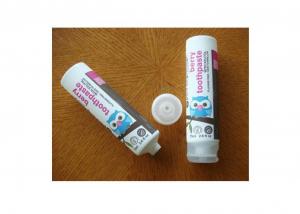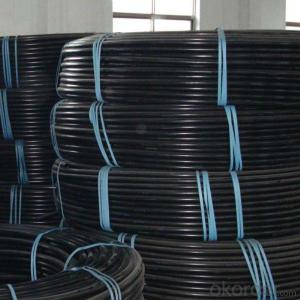Plastic Tubes - Flexible HDPE Water Pipe for Water/Gas Supply Hot Sale
- Loading Port:
- Tianjin
- Payment Terms:
- TT or LC
- Min Order Qty:
- 100 kg
- Supply Capability:
- 1000 kg/month
OKorder Service Pledge
OKorder Financial Service
You Might Also Like
Features:
Our PE pipes for water supply are characterized with features of sanitary, long service life, excellent resistance to corrosion capability, reliable connection, reliable safety capability and lower construction and maintenance cost.
They are applied to transport portable water in the urban area and are also used to distribute water for irrigation and spray irrigation.
Pipes can be used for other industrial purposes by means of transporting chemicals, acid and corrosive solution, corrosive waste water, sewage, drainage pressure, slag, mud and salt water, etc.
They are also applicable for other fields such as waste disposal, power plant, telecommunications, heating, air conditioning and aquaculture.
Polyethylene water supply pipes can be classified to two ratings by different ratings of materials used - PE80 and PE100, and to six series by standard diameter ratio - SDR11, SDR13.6, SDR17, SDR21, SDR26 and SDR33. PE pipe
Advantages:
Long working life. Minimum 50 years life under nomal conditions.
Hygiene. PE pipe are nontoxic, without the composition of heavy metal additives. No scale, not breeding germ, no second pollution to the potable water.
High resistance to attack from various types of chemicals. No electrochemical corrosion.
Smooth internal surface. Extremely low friction coefficient. Improved capability for media to pass through. Excellent abrasive resistance.
Good flexibility, high resistance to impact. Resistance to earthquake and twisting.
Light weight, easy to transport, convenient installation.
Unique electro fusion welding and butt welding make the joints stronger than the material, to guarantee a safe and reliable joint.
Simple welding technique, convenient installation. Total cost is low for the installation.
Polyethylene water pipes are produced in black, black with blue stripes and blue etc.
Specification(UNIT:MM):
outer diameter | SDR33 | SDR26 | SDR21 | SDR17 | SDR13.6 | SDR11 |
0.4Mpa | 0.6Mpa | 0.8Mpa | 1.0Mpa | 1.25Mpa | 1.6Mpa | |
wall thickness | wall thickness | wall thickness | wall thickness | wall thickness | wall thickness | |
20 | 2 | 2 | 2 | 2 | 2 | |
25 | 2 | 2 | 2.3 | 2.3 | 2.3 | |
32 | 2 | 2.3 | 2.3 | 2.3 | 3 | |
40 | 2.3 | 2.3 | 2.5 | 3 | 3.7 | |
50 | 2.3 | 2.5 | 3 | 3.7 | 4.6 | |
63 | 2.9 | 3 | 3.7 | 4.7 | 5.8 | |
75 | 3 | 3.7 | 4.5 | 5.6 | 6.8 | |
90 | 3.7 | 4.3 | 5.4 | 6.7 | 8.2 | |
110 | 4.2 | 5.3 | 6.6 | 8.1 | 10 | |
125 | 4.8 | 6 | 7.4 | 9.2 | 11.4 | |
140 | 5.4 | 6.7 | 8.3 | 10.3 | 12.7 | |
160 | 6.2 | 7.7 | 9.5 | 11.8 | 14.6 | |
180 | 6.9 | 8.6 | 10.7 | 13.3 | 16.4 | |
200 | 7.7 | 9.6 | 11.9 | 14.7 | 18.2 | |
225 | 8.6 | 10.8 | 13.4 | 16.6 | 20.5 | |
250 | 9.6 | 11.9 | 14.8 | 18.4 | 22.7 | |
280 | 10.7 | 13.4 | 16.6 | 20.6 | 25.4 | |
315 | 12.1 | 15 | 18.7 | 23.2 | 28.6 | |
355 | 13.6 | 16.9 | 21.1 | 26.1 | 32.2 | |
400 | 15.3 | 19.1 | 23.7 | 29.4 | 36.3 | |
450 | 17.2 | 21.5 | 26.7 | 33.1 | 140.9 | |
500 | 19.1 | 23.9 | 29.7 | 36.8 | 45.4 | |
560 | 21.4 | 26.7 | 33.2 | 41.2 | 50.8 | |
630 | 24.1 | 30 | 37.4 | 46.3 | 57.2 | |
710 | 21.8 | 27.2 | 33.9 | 42.1 | ||
800 | 24.5 | 30.6 | 38.1 | 47.4 | ||
900 | 27.6 | 34.4 | 42.9 | 53.3 | ||
1000 | 30.6 | 38.2 | 47.7 | 59.3 | ||
1200 | 36.7 | |||||
1400 | 42.9 | |||||
1600 | 49.0 |
Performance and Feature:
1.Non-toxic, health: PE pipe material non-toxic, tasteless, through the strict health monitoring ,it belongs to green building materials, never scaling, which can effectively improve the water quality.
2.Corrosion resistance: PE belongs to inert materials, can resistance to various chemical media.
3.Noleakage, : PE pipe is connected by electric melting, its interface strength higher than tube itself.
4.High toughness: fracture extension rate of PE pipe, commonly more than 500%. .As to the uneven settlement of the base, its adaptive ability is very strong, good aseismic performance.
5.Excellent resistance to quickly crack propagation (RCP) ability.
6.Excellent flexible and resistance to scratches ability.
7.Good wear resistance, low wall friction coefficient, small flow resistance, excellent conveying ability.
8.Can use a variety of trenchless ways, great convenient for construction and installation.
9.Low system cost, less maintenance costs, can dramatically reduce the cost for the project.
10.Long service life: dark bury PE pipe normal uses more than five years.
11.PE material can be reused, complete with the concept of efficient environmental protection which our state advocates .
Pipe Application:
1.Urban tap water pipe network system:Large diameter PE pipe, health non-toxic, not fouling, more suitable for urban water supply main conduit and buried tube, safety, hygiene, convenient construction.
2.Replaceable cement tubes, iron pipe and steel tube:Used for old nets renovation project, don’t need large area excavation, low cost, can be widely used in old town of pipe network reconstruction.
3.Industrial materials duct:Chemical industry, chemical fiber, food, forestry, pharmacy, light industry and papermaking, metallurgical and other industrial raw material conveying pipe.
4.Landscaping water supply network:Landscaping need lots of water pipe, PE pipe toughness and low cost, make it become the best choice.
5.Sewage discharge pipes:PE pipe have unique corrosion resistance, can be used in industrial wastewater, sewage discharged pipe,low costs and maintenance costs .
6.Ore, mud transfers:PE pipe has high resistance to stress and wear resistance, can be widely applied in conveying ore, coal ash and river bait-casting mud.
7. Agricultural irrigation pipe:PE pipe inside sleek, great flow, cross road construction, good impact resistance, it is the ideal tool for agricultural irrigation.
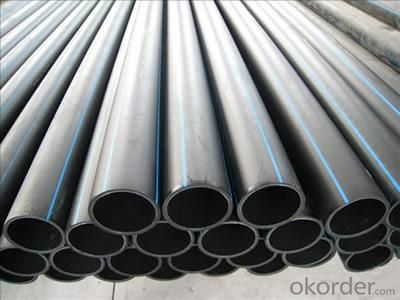
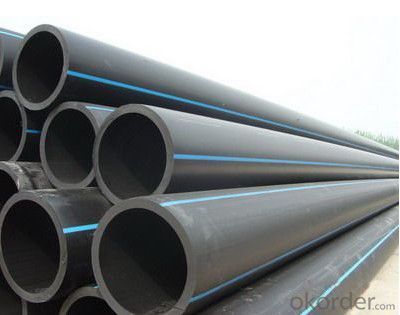
- Q: i finally bought a new faucet, and changed it. it seems that there is no more leaking from the faucet.but now, it seems that there is some water leaking right under that white plastic screw. around the plastic looking tube. inside of it, there is a dark rubber kind of ring around it. i can't take out the white plastic tube connector. otherwise, i will just put some plastic tape, and seal it. that shouldn't be so hard.now i am thinking, what if i put some plumber's putty inside of that white plastic tube connector? will that solve the problem?
- Did you use teflon tape on the threads when you installed the supply hose? This seals the threads so you don't get a leak from the hose fitting. And, if this leaks, it can seem like it's coming from the brass pipe or the faucet itself. You can get a roll of it for less than a buck at any hardware store. Just wrap it around a couple of layers about an inch up the pipe and connect the supply hose. Don't use plumber's putty. It's not made for high pressure applications and it will eventually fail, if it even works at all.
- Q: Are plastic tubes suitable for use in the water treatment industry?
- Yes, plastic tubes are suitable for use in the water treatment industry. Plastic tubes are commonly used in various water treatment processes due to their corrosion resistance, durability, and ability to withstand high-pressure conditions. Additionally, plastic tubes are lightweight, cost-effective, and can be easily installed, making them a popular choice for water treatment applications.
- Q: what is dialysis tubing? how can it be used to demonstrate osmosis?
- Dialysis tubing is actually a semi-permeable membrane when used in water. Experiments illustrating osmosis and pressure gradients across a membrane use dialysis tubing. This tubing usually comes in rolls and when wet, will open up into a cylindrical tube that can be tied off at the ends. The tubing can also be fitted over a thistle tube for such experiments. Dialysis tubing is literally a semi-permeable sheet of plastic. [Like a cell membrane, it can allow certain things in, but not everything.] In a dialysis tubing experiment, one fills the inside of the sheet with a concentrated liquid of some sort and then seals off the open ends of the tube. Then, one places the tube and liquid into another type of liquid and after awhile, the liquid from the outside moves inside the tube. What I did for my first dialysis tubing experiment was filling the inside of the tube with a concentrated starch solution and placed the tubing into a beaker of Lugol's solution diluted with distilled water. After a 1/2 hr, some of the Lugol's and distilled water will have entered the dialysis tubing. One can see that osmosis has happened because the Lugol's in the tube would have turned blue when in contact with the starch. Osmosis caused the diluted/unconcentrated solution of Lugol's and dH2O to go through the semi permeable membrane and into the concentrated solution of starch. Like a cell's membrane, if the outside of the cell is more concentrated, the cell would lose water because the the water will leave the cell and go for the concentrated outside environment. If the inside of the cell was more concentrated than the outside, the outside water will go into the cell through the semipermeable membrane.
- Q: How can the pipe support for water supply and drainage be calculated?
- The support of a drain pipe is contained in a pipe and is usually not counted
- Q: he is 2yrs old he has outgrown his cage, i see people on youtube put there snakes in plastic tubes from like walmart will that be ok? will he be comfortable in that?
- no, i hope your a troll. if not, poor snake.
- Q: Do plastic tubes have any odor or taste?
- Yes, plastic tubes can have a slight odor or taste, especially if they are made from low-quality or recycled materials. However, most plastic tubes used in various industries are made from food-grade materials and undergo rigorous testing to ensure they are odorless and tasteless.
- Q: How does groundwater flow into a well pipe? It was a small bore well, made of plastic tubing
- The filter pipe is located in the aquifer, whose length determines the amount of water drawn from the well.
- Q: Can plastic tubes be used for storing flammable substances?
- No, plastic tubes should not be used for storing flammable substances as they pose a higher risk of fire or explosion due to their low heat resistance and potential for chemical reactions.
- Q: How much is the pipe digging face?
- The working characteristics of directly mining minerals or rocks are moved along with the progress of excavation.Parts machined by parts.Working face (lighted) usually refers to the work place, where there is a standard and to the illuminance measurement. Unless specifically stated, it is generally assumed to lie on the horizontal surface 0.76 meters (30 inches) above the floor.
- Q: I'm building a science project with my little sister, and we quite frankly need some help. The plan is to make a little rollercoaster out of plastic tubing as the track. It's kind of thick, so it doesn't bend very well. We've been straightening it out for a couple days, but it's still slightly wavy. We need to get it into a solid position. The plan is to support it on some boxes, and maybe tape it down so it holds it's form.But, there is a part in the rollercoaster where it needs to be extremely straight. Any ideas??
- Heat it where you want the bend. If it is small tubing and depending on what it is made of, place where you want the bend to be in boiling water, take it out, bend it to shape and hold it there until it cools. If it is of a better material or thicker, wrap it with aluminum foil and hold it over a candle, but beware that it will get very hot and may start to melt. P.S. After reading again, you want to straighten it, so you will need to heat it and then roll it back and forth slowly until it cools.
Send your message to us
Plastic Tubes - Flexible HDPE Water Pipe for Water/Gas Supply Hot Sale
- Loading Port:
- Tianjin
- Payment Terms:
- TT or LC
- Min Order Qty:
- 100 kg
- Supply Capability:
- 1000 kg/month
OKorder Service Pledge
OKorder Financial Service
Similar products
Hot products
Hot Searches
Related keywords
